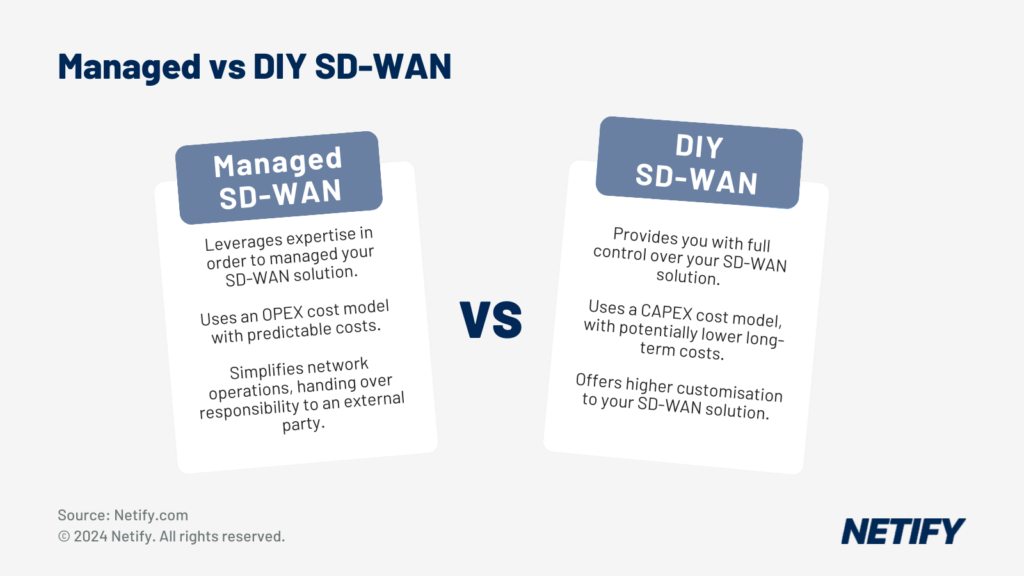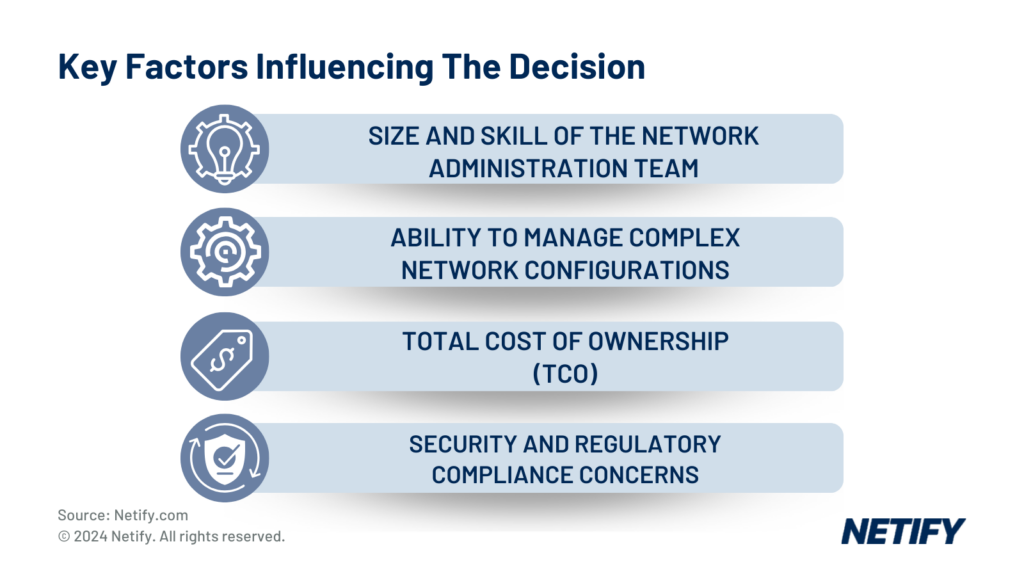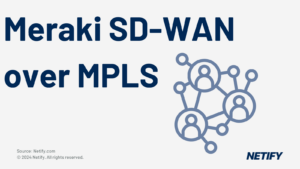| Choosing between Managed, DIY, or Co-Managed SD-WAN depends on your business’s expertise, budget, and need for control, scalability, and security. |
Businesses typically look to reduce the Total Cost of Ownership (TCO) whilst improving the speed, scalability and flexibility of their network connections. One way for businesses to achieve this is through Software-Defined Wide Area Network (SD-WAN) solutions, which offer multiple deployment options: Do-It-Yourself (DIY), managed and co-managed.

- Managed VS DIY SD-WAN Comparison
- Managed vs DIY SD-WAN Comparison
Whilst SD-WAN simplifies the overall network management by abstracting complex processes, this also means that SD-WAN conceals much of the complexity in the underlying network connectivity. For businesses lacking network expertise, this can be a difficult process to setup. By utilising managed services, with experts that are adept in handling these challenges, it ensures the smooth deployment and running of SD-WAN.
DIY SD-WAN: Control with Caution
Do-It-Yourself (DIY) SD-WAN solutions offer businesses with full control over their SD-WAN solution. This means that businesses can deploy and customise their solution in order to meet regulatory, security or operational requirements. Due to the nature of being managed in-house, DIY SD-WAN can be considered a Capital Expenses (CAPEX) model, which offers the benefit of lower long-term costs.
Unfortunately, due to the absence of external expertise, DIY SD-WAN does require expertise in network design, security and management. This introduces risks such as choosing the wrong solution to meet demands, network inefficiencies and even potential network downtime.
Without managed expertise, adopters of DIY SD-WAN must stay up to date with ongoing security threats and compliance requirements in order to avoid breaches, performance issues and disruptions.
Given there are so many DIY SD-WAN vendors, it can be difficult to know which solution is best for your business. For a more simplified DIY solution, Cisco Meraki SD-WAN offers businesses with Zero Touch Provisioning and a cloud-first approach making Meraki ideal for businesses looking to reduce the complexity of the deployment process, especially if many branch sites are being deployed.
On the other hand, for businesses looking for a more in-depth solution, Meraki may not be so applicable. We appreciate that businesses are now seeing an increased demand for flexible deployment options across different cloud environments and one vendor that has been able to deliver this functionality particularly well is VMware, with VMware SD-WAN known for its flexibility and integrations with cloud services, utilising their worldwide deployed gateways.
Managed SD-WAN: Efficiency and Expertise
Managed SD-WAN utilise external service providers to provide network maintenance and management of daily operations. Unlike the CAPEX model of DIY SD-WAN, managed SD-WAN typically offers a cost predictable Operating Expenses (OPEX) model. The predictability of costs is due to managed SD-WAN often covers everything from maintenance to upgrades and technical support. In a DIY setting, these services typically incur additional costs. This means that future scalability and adaptability of the network is made more straightforward with managed SD-WAN and minimises potential disruptions.
Unfortunately, managed SD-WAN solutions lack the adaptability of DIY solutions. This may impose limited customisation of the network deployment and means that managed SD-WAN solutions may not meet all the network demands of businesses.
One of the managed SD-WAN vendors that offer more specialised services is Aryaka, which utilises a fully managed, cloud-first approach with ideal coverage for businesses in Asia.
Whilst Aryaka is a specialist in simplified managed SD-WAN services, Fortinet is considered a leader in the SD-WAN market, as per Gartner’s SD-WAN Magic Quadrant. Through their FortiGuard integrations into their SD-WAN solution, Fortinet offer a vastly superior security offering when compared to other vendors.
Co-Managed SD-WAN: A Balanced Approach
For businesses that would like a bit more control of their network but don’t want the responsibility of being completely DIY, Co-Managed SD-WAN solutions offer the most balanced approach. Within co-managed services, businesses retain control of their network’s strategic decision making over policies and specific network segments, whilst using experts to handle day-to-day management for smooth operations. These responsibilities can overlap and therefore businesses adopting Co-Managed SD-WAN services should clearly define who is responsible for each part of the network management in order to prevent conflicting or neglected management.
For Co-Managed SD-WAN services, Versa Networks offers its Co-Managed SD-WAN, providing expertise over many network functions.
Key Factors Influencing the Decision

- Key Factors Influencing SD-WAN Decisions
- Key Factors Influencing SD-WAN Decisions
When deciding which SD-WAN management approach to take, businesses should consider a multitude of factors. Arguably the most important of these factors is the size and skill of their network administration team, with larger teams with expert administrators typically being far more prepared to handle the challenges of DIY SD-WAN solutions.
Whilst the ability to manage complex network and security configurations is often the most important factor, another factor of often similar importance is the Total Cost of Ownership (TCO), where hidden costs in staffing, training and potential downtime can all contribute to making DIY solutions costs rise.
Another consideration for businesses within certain sectors is security compliance, which includes the management of ongoing threats, ensuring the network complies with regulations and this can be assisted with the help of managed services, such as 24/7 incident responses to security issues.
Strategic Insights and Future Considerations
Emerging integrations of technologies like Artificial Intelligence (AI) and automations are expected to simplify network processes, such as deployment, management, configuring policies and monitoring for potential threats. Both AI and automation integrations aim to reduce the volume of manual work, reducing the complexity of network administration and assists with the reduction of human-error across SD-WAN deployments.
Conclusion
Businesses looking to adopt SD-WAN should consider factors such as in-house expertise, budgets and network requirements before selecting the most appropriate approach. Do-It-Yourself SD-WAN offers businesses with maximum control of their network and offers potential cost savings. However, these benefits typically come with the caveat of requiring significant in-house experience.
Managed SD-WAN relieves businesses from the complexity of management and typically has predictive costs but also suffers from a lack of customisation.
To strike a balance, Co-Managed SD-WAN enables businesses to gain the control offered by DIY solutions whilst also utilising the insights of Managed SD-WAN experts.
The approach taken by businesses is largely dependent on business unique needs and requirements. It should be noted, with the increasing number of AI and automation integrations into SD-WAN, these technologies are making DIY SD-WAN easier to integrate without as much expertise as previously required. This means that businesses should consider not only their current but future requirements and select the best approach to meet their current operational goals, whilst being able to adapt for long-term success.


